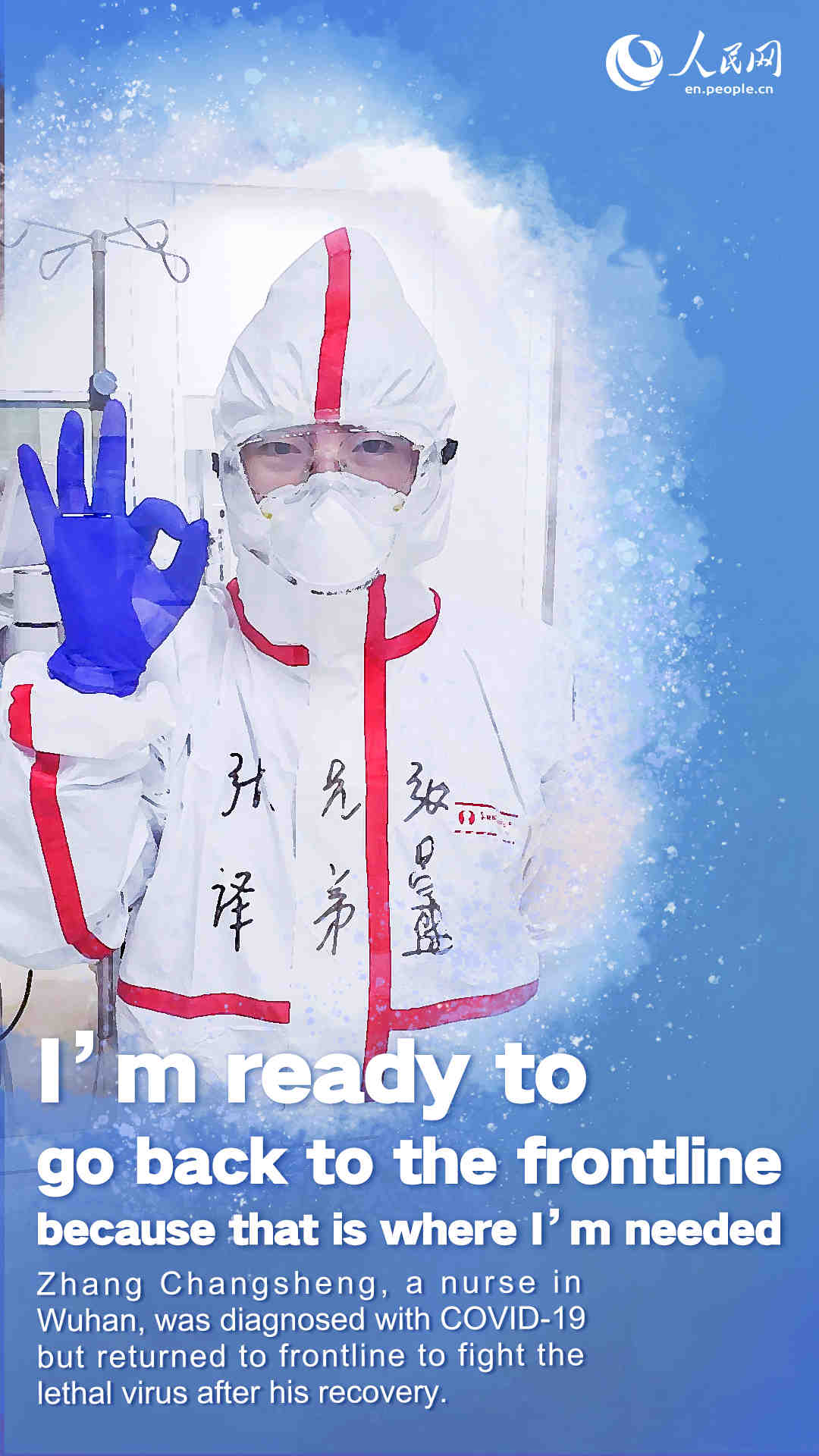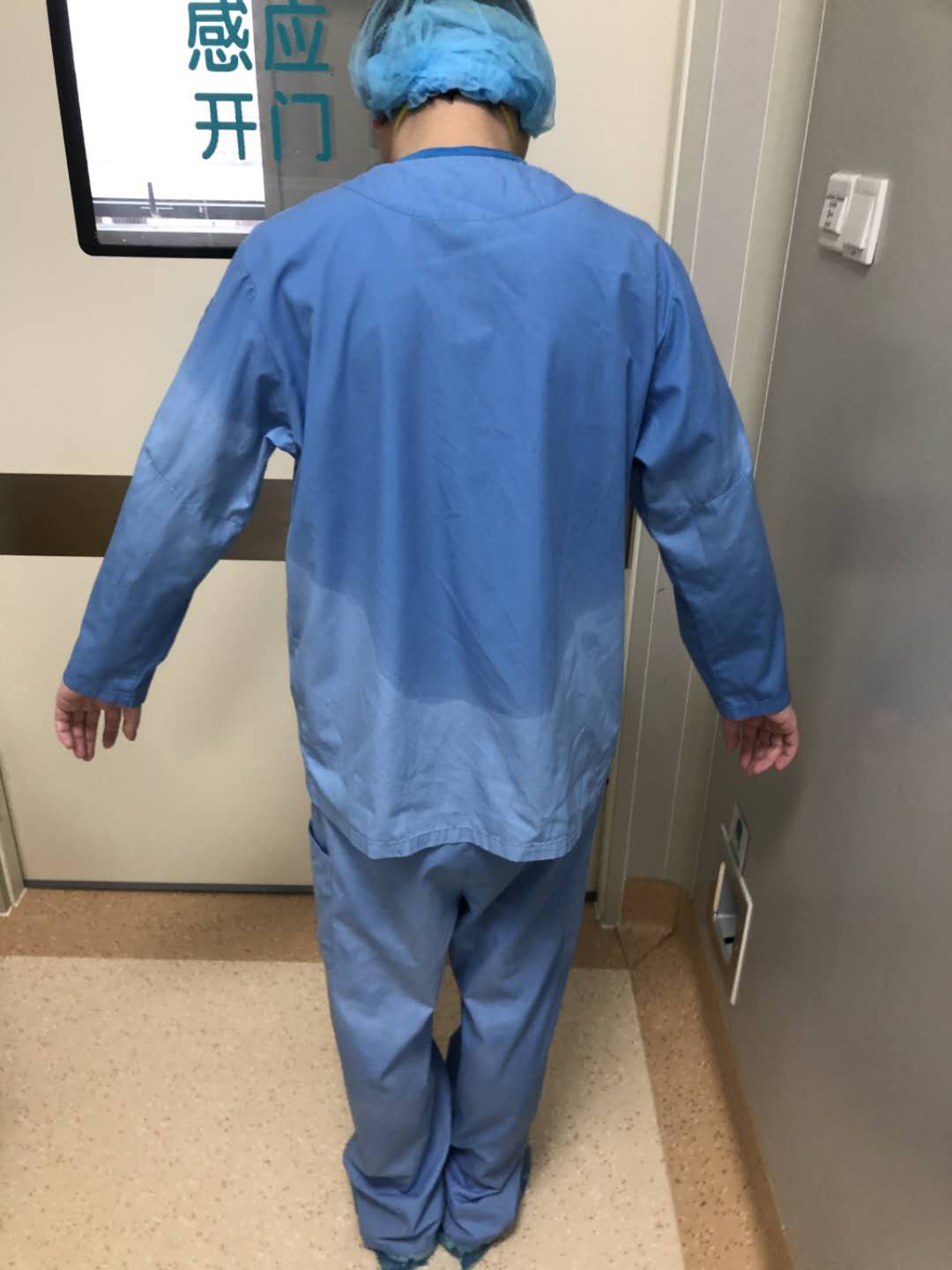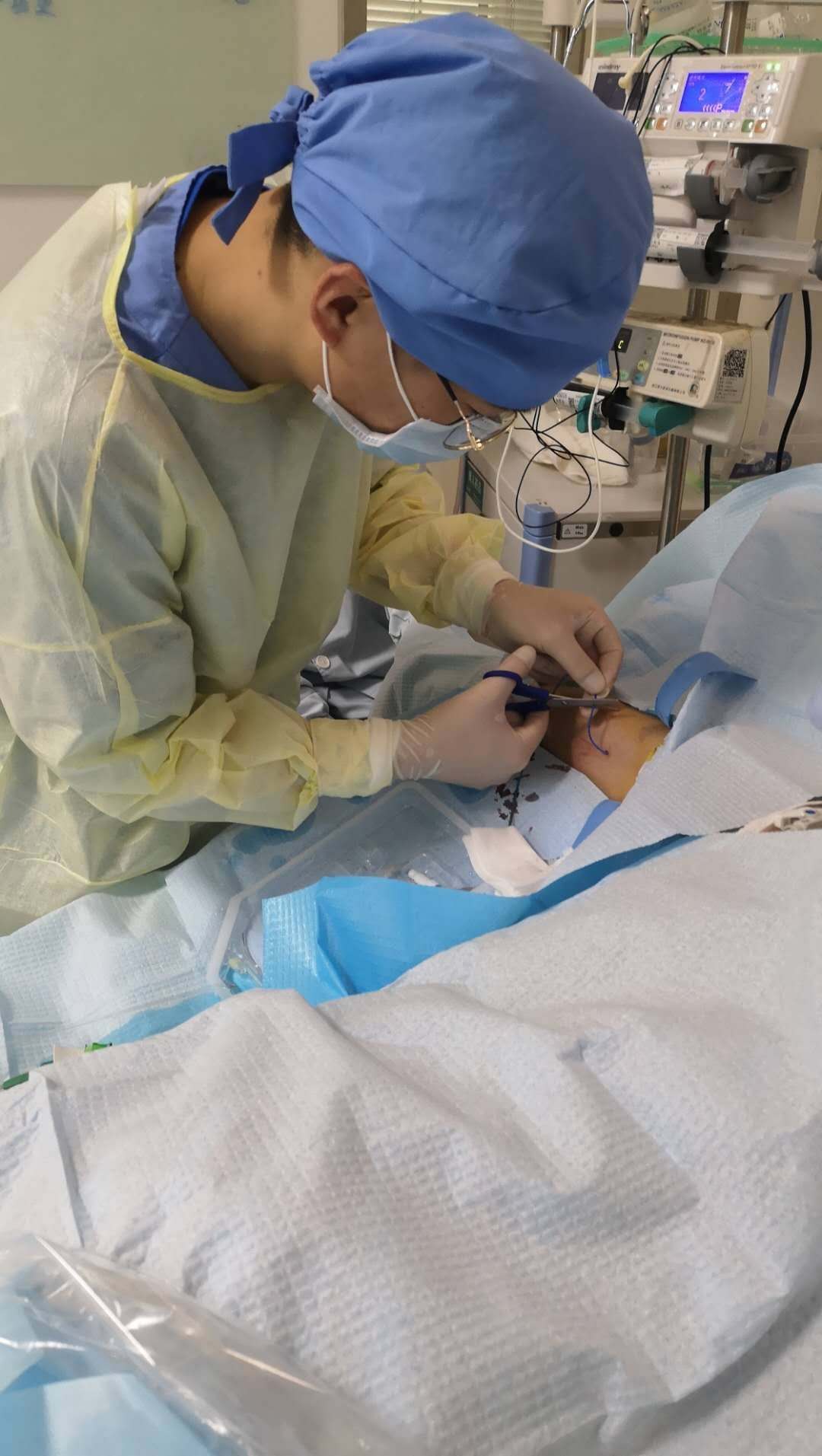
I will use treatment to help the sick according to my ability and judgment, but never with a view to injury and wrong-doing. Into whatsoever houses I enter, I will enter to help the sick.
January 19, 2019 is a day that 32-year-old Zhang Changsheng will remember for the rest of his life. On that day, the hospital where he worked confirmed that he and 13 of his colleagues had been infected with COVID-19. Their suffering would prove to the world that this unknown virus could be transmitted between humans.
Seventeen days after fully recovering from the disease, Zhang volunteered to go back to the frontline to help fight it. Armed with an optimistic attitude, he shared his experience with those who lived in fear of the lethal virus.
“My experience of having COVID-19 will be more convincing to our patients. I hope they can stay in good spirits and listen to the doctors’s instructions, because the disease is not that terrible,” said Zhang.
On his social media, Zhang posted some simple put powerful words to inspire his patients and friends: “Every winter will come to an end, and once it does, I hope all will enjoy the spring blossom and stay healthy.”

Zhang was covered in sweat after work. (Photo by Zhang Changsheng)
Zhang works as a nurse in Xiehe Hospital in Wuhan, Hubei Province. On January 16, he was struck with a high fever. Little was known about COVID-19 at that time, and Zhang didn’t give too much thought to his illness.
“I was diagnosed with COVID-19 on January 19, along with 13 colleagues. I was quite confident that I would soon be discharged from the hospital, as I’ve always been healthy,” said Zhang.
But this illness turned out to be far more dangerous than he thought. On January 23, four days after his diagnosis, Zhang had difficulty breathing, as well as a high fever. While sick in bed, he began to worry about his wife, who is also a medical professional, and their young daughter.
“I was covered in sweat when I called my family. After I heard that my family members were all safe and sound, I was really happy. I would rather suffer the disease myself than let them share my pain,” said Zhang.
During his stay in the hospital, Zhang and his colleagues set up a group chat to cheer each other up. One of his colleagues, who suffered severe respiratory illness and had to stay in bed for days, received his encouragement everyday through the ward windows, where Zhang gave them uplifting news and shared stories with them.
Zhang also became an online celebrity when, during an interview with CCTV, he made an “OK” gesture to the audience, telling them that the disease is treatable and that he would be recovering soon. The gesture prompted netizens to nickname him “OK brother”, and they began sending him their wishes along with their questions. Zhang started to answer the public’s concerns about the lethal virus, comforting those who had already been infected.
On February 6, 19 days after he was sent to the hospital, Zhang had fully recovered and could go back to his family.
“My wife was waiting at me at the doorway. She looked at me for a few seconds, and then said three words: ‘You have returned’,” recalled Zhang.

On February 23, seventeen days after his recovery, Zhang went back to the hospital to help the patients. (Photo by Zhang Changsheng)
Ever since Zhang came back home, he started planning to go back to the hospital, as he know there were many patients who were going through what he had, and he wanted to bring them comfort.
“Many medical workers in my hospital have been working for days on end since the virus began spreading. I want to go back to the frontline to share their burden, because they must be exhausted and stressed,” said Zhang.
While waiting for his application to be approved, Zhang and his colleagues also decided to donate their blood to patients, as they wanted to do whatever they could to tackle the virus if they couldn’t work.
On February 23, seventeen days after his recovery, Zhang went back to the hospital to help the patients. His colleagues wrote his name on his protection suit, and his patients welcomed him on his return.
On his first day back at work, Zhang saved two patients who suffered cerebral hemorrhage by inserting a peripherally inserted central catheter into them, a complicated medical procedure that is tiring and time-consuming.
“It took me at least half an hour to perform the procedure. After it was done, I was covered in sweat and could hardly breathe,” said Zhang.
For his own safety, the hospital has decided to reduce his workload and assigned him more administrative work, but Zhang insists on doing more for his patients.
“I have been telling the hospital that I’m ready to go back to the frontline, because that is where I’m needed, ” said Zhang.

